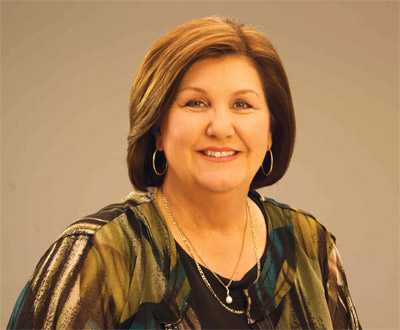Joy Gillett Mental Health Interview

Joy Gillett Mental Health Interview
Why does Australia fail so badly to improve Mental Health care despite millions of dollars spent and a number of reports on how to improve it? When it comes to mental illness, what we don't know is nothing compared to what we do know but don't do.
A new approach is about to focus on prevention rather than cure to provide new directions in Mental Health research.
In May, Australia's top authorities in Mental Health will aim to set new directions for prevention of mental disorders across five stages of life; prenatal and early childhood, childhood (5-12 years), adolescence, adulthood and old age.
The Australian Rotary Health Symposium will be held at International House, ANU, Canberra, ACT on 2nd-3rd May, 2013.
Mental illnesses are the leading cause of the non-fatal disease burden and represent an immense psychological, social and economic cost to society. As a nation we spent $6.3 billion on mental health-related services in 2009-2010, an amount which has grown by 4.5% each year since 2005-2006.
According to the World Health Organization, current treatment models for mental disorders lack effectiveness and the only sustainable method for reducing the burden caused by these disorders is prevention.
"A recent survey of stakeholders in the mental health area asked them about priorities for research and found that prevention was the number one priority," says Professor Tony Jorm, Professional Fellow at the University of Melbourne and Convenor of the symposium. 'Prevention is a cornerstone of public health action for physical diseases. We need to learn from this experience and make it also a cornerstone for action on mental disorders," he claims.
Professor Jorm is one of the most cited researchers in Psychology and Psychiatry of the past 20 years, and he endorses the importance of this new emphasis in mental health research.
'Prevention is the Cinderella of mental health, not receiving the same attention as treatment and services, even though it has greater potential to reduce human suffering in the long term," says Professor Jorm. 'In Australia, we have made great strides in providing primary and specialist care for people with mental disorders. However, prevention is the missing element and remains neglected."
Professor of Psychology at Macquarie University, Professor Ron Rapee, will lead discussions on the prevention of mental disorders during childhood. He is also Director of the Centre for Emotional Health.
"Getting in early and helping young children who are at risk of mental health problems is often going to be the best place to start," Professor Rapee says. "There are already some great programs that show good early intervention effects - we need more investment to keep developing and improving these programs."
The Australian Rotary Health Symposium will see 25 Senior Researchers, 5 Policy Makers and 3 Funding Bodies present evidence-based research on the prevention of mental disorders during the five stages of a lifespan.
Priority directions for prevention research will be identified, and findings from the Symposium will be published later this year.
Interview with Joy Gillett
Joy Gillett - CEO of Australian Rotary Health (ARH) and Event Organiser.
Question: Why is Australia failing to improve Mental Health care despite millions of dollars spent?
Joy Gillett: I agree we are spending a lot of money and time but compared to other health areas we are not spending anywhere near the money that's being spent in cancer research as an example. I think we still need to put a lot more money and energy into mental health.
Question: What is the reasoning behind focusing on prevention rather than cure?
Joy Gillett: At the moment the money is heavily going into cure or treatment. Prevention is really something that has just started to happen. However most of the researchers are now realising that they have to concentrate on prevention because the number of people who are now suffering from a mental health problem is increasing on a daily basis and if we don't do something about prevention we will end up spending an awful lot of money on treatment and cure and we honestly don't have the money in our health system to do that.
Question: Can you talk about the method of prevention and how this will be implemented Australia wide?
Joy Gillett: A lot of it is to do with lifestyle; there is a lot of research in regards to eating and what sorts of food people eat. The current thinking is that people who eat a lot of junk food (fried food, take away food) are more probable to have a mental health problem than those who do eat a proper diet. Food is one of the major areas that is being looked at, at the moment and exercise is another; people who regularly exercise suffer from less mental illness problems than those who don't. What we are currently looking at are lifestyle factors.
Question: How will you go about setting a new direction for prevention of mental disorders across five stages of life?
Joy Gillett: Yes, we are looking at babies right through to the older Australians (prenatal and early childhood, childhood (5-12 years), adolescence, adulthood and old age). We are looking at the different areas that affect different people. With babies we are looking back before they're born and what mums do and the general health of the mother including what they're eating and drinking during pregnancy. We already know that smoking and drinking alcohol is not good for an unborn child's life as it can lead to mental health problems once they're born; there is a lot of work going on in regards to that.
For younger children a common message that we talk about is -don't fight in front of the kids' as enormous damage can be done to young children when they hear mum and dad bickering and this is a message that we will try and publicly put out there.
Question: Are you looking at educating school students about mental illness disorders as well as coping mechanisms?
Joy Gillett: Yes we absolutely have to educate school students. Twenty or thirty years ago no one spoke about mental health problems; it was something you didn't talk about. You didn't want to discuss your friend or relative that went into a depressive state for six months and wouldn't speak to anyone; you hoped they were in a -black mood' and that was all that was said, no body realised that they were actually in a state of depression and needed help. I think we have become more aware of these things.
I'm sure mental health problems are becoming more and more frequent but I'm sure we are now recognising them for what they are. Whereas twenty or more years ago no one did, it wasn't recognised. When we look back at Sir Winston Churchill it is well known now that he had depression and he had periods of extreme depression and I'm sure at the time that wasn't recognised for what it was, they were called his -black days' and no one understood it was a depressive state.
Coping mechanisms are more of a treatment than prevention and we are looking at what can be done before people have attacks of anxiety or attacks of depression. We hope to look at lives and think of ways they can change their lives to stop them from getting to the stage where they need treatment and of course that can't be done in every case. There are still many people out there who will need to be treated and who will need to receive on going treatment for mental health problems but if we can look at it, before the mental health problems develop and stop some of them developing we've achieved our aim.
Question: What do you hope to achieve with the The Australian Rotary Health Symposium?
Joy Gillett: We are hoping five headlines will come from the coming Australian Rotary Health Symposium that can immediately be done to help with prevention of mental health disorders. I am looking forward to it and I'm sure it will have a great outcome.
Question: Is the rate of mental illness amongst Australians growing?
Joy Gillett: Yes, it is growing quite steadily.
Question: What types of mental illness have the highest rates in Australia?
Joy Gillett: Depression and anxiety are the most common mental illnesses in Australia and approximately one in four or five Australians suffer from depression or anxiety. The more debilitating mental illnesses such as bipolar disorder and schizophrenia are nowhere near as common but again they have a huge impact on a person's life and how they lead their life. Even though depression is more common it can be treated and if we can treat it we are now looking at being able to prevent it.
Interview by Brooke Hunter
MORE
- How to Conquer Bad Winter Health Habits
- 1.5 million for 1.5 million Victorians...
- Be U Not a Bully Forum for Parents and Teens
- New Screening Test Recommended To Help Prevent...
- Vitamin D Mushrooms May Solve Health Dilemma
- Gemma Howorth World-First Solates Class Interview
- Federal Government Clarifies Carer Allowance...
- Fiona Clark Sleep Problems Linked to Bullying...
- Elective Surgery and Emergency Care on Increase
- Emotional Stress Proves to be a Pain in the Back
- CPSA applauds Choice IPL and Laser Regulation...
- Karen Kaye Complementary Medicines Are...
- Danielle Stowasser Pain Relief Interview
- Dr Weng Sam Type 2 Diabetes Medication Interview
- Blood Clots and Stroke Fourth Indicator
- An Unhealthy Mouth can lead to Heart Disease
- Sharing MS Diagnosis Key To Retaining Employment
- CanTeen Counselling Service
- Australia Leads The Way With HPV Vaccination Of...
- Chloe Cunningham No More Angels Lost to...





